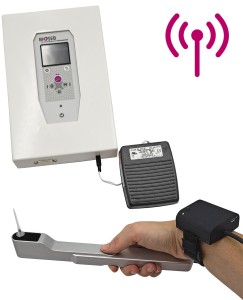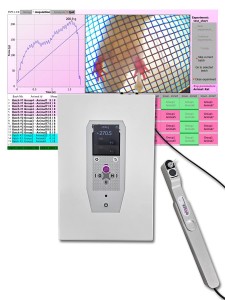Authors
P Chang, L Fabrizi, M Fitzgerald
Lab
University College London, London, UK
Journal
bioRxiv
Abstract
Early life pain experience (ELP) alters adult pain behaviour and increases injury induced pain hypersensitivity, but the effect of ELP upon adult functional brain connectivity is not known. We have performed continuous local field potential (LFP) recording in the awake adult male rats to test the effect of ELP upon functional cortical connectivity related to pain behaviour. Somatosensory cortex (S1) and medial prefrontal cortex (mPFC) LFPs evoked by mechanical hindpaw stimulation were recorded simultaneously with pain reflex behaviour for 10 days after adult skin injury. We show that, post adult injury, S1 LFP delta and gamma energy and S1 LFP delta/gamma frequency modulation are significantly increased in ELP rats compared to controls. Adult injury also induces increases in S1-mPFC functional connectivity which is significantly prolonged in ELP rats, lasting 4 days compared to 1 day in controls. Importantly, the increases in LFP energy and connectivity in ELP rats were directly correlated with increased behavioural pain hypersensitivity. Thus, early life pain (ELP) alters adult brain functional connectivity, both within and between cortical areas involved in sensory and affective dimensions of pain. The results reveal altered brain connectivity as a mechanism underlying the effects of early life pain upon adult pain perception.
BIOSEB Instruments Used
Electronic Von Frey 4 (BIO-EVF4),Electronic Von Frey 5 with embedded camera (BIO-EVF5)
Source :

 Pain - Thermal Allodynia / Hyperalgesia
Pain - Thermal Allodynia / Hyperalgesia Pain - Spontaneous Pain - Postural Deficit
Pain - Spontaneous Pain - Postural Deficit Pain - Mechanical Allodynia / Hyperalgesia
Pain - Mechanical Allodynia / Hyperalgesia Learning/Memory - Attention - Addiction
Learning/Memory - Attention - Addiction Physiology & Respiratory Research
Physiology & Respiratory Research











![Dynamic Weight Bearing 2.0 – Postural Module [Add-on]](https://bioseb.com/733-home_default/dynamic-weight-bearing-20-add-on-postural-module.jpg)
























 Pain
Pain Central Nervous System (CNS)
Central Nervous System (CNS) Neurodegeneration
Neurodegeneration Sensory system
Sensory system Motor control
Motor control Mood Disorders
Mood Disorders Other disorders
Other disorders Muscular system
Muscular system Joints
Joints Metabolism
Metabolism Cross-disciplinary subjects
Cross-disciplinary subjects CONFERENCES & MEETINGS
CONFERENCES & MEETINGS 
